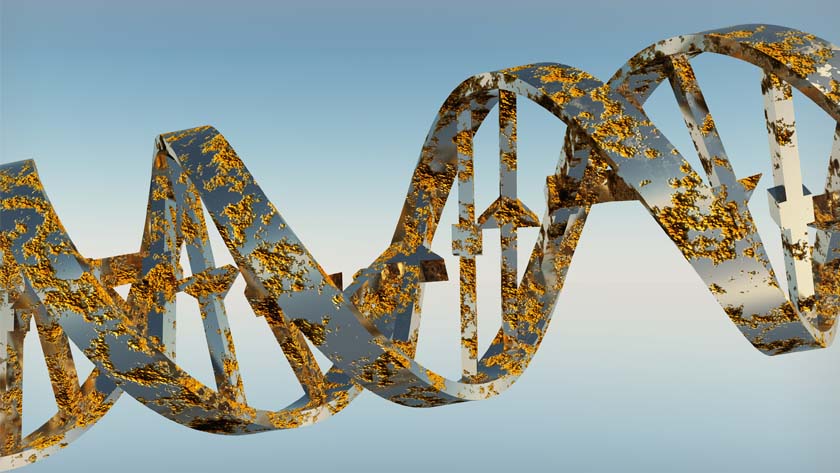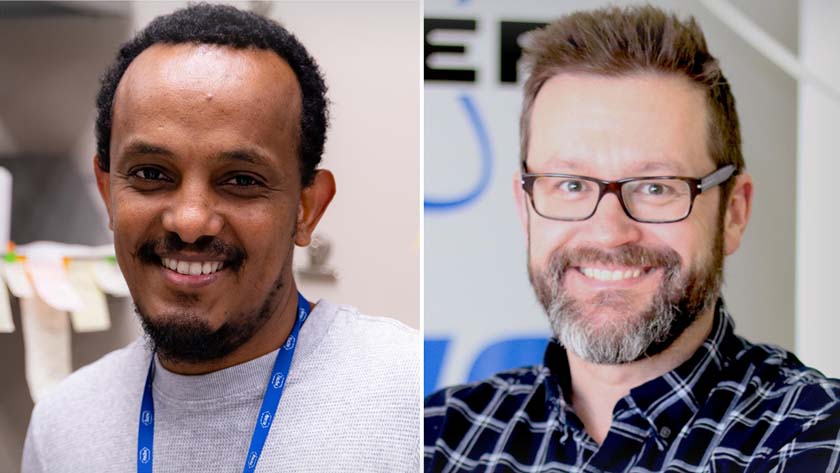
Princess Margaret (PM) Cancer Centre researchers have revealed how a genetic change can make certain cancers harder to treat.
They identified a particular genetic change, or mutation, in a gene that plays a key role in cell signaling called KRAS. The mutation—known as Q61H—results in the wrong amino acid being incorporated in the KRAS protein and enables cancer cells to become resistant to promising experimental treatments known as SHP2 inhibitors.
Targeting the SHP2 enzyme has been shown to be an effective anticancer strategy in recent clinical trials, particularly for the treatment of cancers harbouring KRAS mutations. However, not all patient tumours respond to treatment.
“It is clear that cancer cells with certain KRAS mutations display variable sensitivity to the treatment; however, the underlying mechanisms that cause resistance to SHP2 inhibitors have yet to be determined,” says PM Senior Scientist Dr. Mitsu Ikura, who co-led the study with PM Staff Scientist Dr. Christopher Marshall and University of Toronto Professor Dr. Michael Ohh.
By studying how the Q61H mutation alters the function of the KRAS protein, the researchers hoped to reveal why some KRAS mutations provide cancers with the ability to evade treatment.
Using advanced biophysical and molecular dynamics approaches, the team characterized the mutation and mapped out the underlying mechanisms that caused it to be resistant to SHP2 inhibitors.
They found that the Q61H mutation locked KRAS in the “on” position, leading to over activation of cell signalling pathways. They also found that the mutated form of the protein was not affected by tyrosyl phosphorylation—which typically acts like a “dimmer” switch to dampen KRAS signaling activity.
“These findings highlight the need to stratify cancer patients with KRAS mutations who may benefit from SHP2 inhibitors, versus those that may be resistant” explains Dr. Ikura. “Having this knowledge will also help us to tailor these new experimental therapies for individual patients.”
“Our findings were the result of great teamwork between several groups including those of Drs. Michael Ohh, Brian Raught and Ming-Sound Tsao,” says Dr. Ikura. “Together, with Dr. Marshall and Dr. Teklab Gebregiworgis, who is the first author of the study, the team did a remarkable job of characterizing this KRAS mutant, which is present in 8-10% of all pancreatic cancer patients.”
This work was supported by the Canadian Cancer Society, the Canadian Institutes of Health Research, the Canadian Foundation for Innovation, Compute Ontario, Compute Canada, the National Institutes of Health, the George and Helen Vari Foundation, the Japan Society for the Promotion of Science, the Sumitomo Life Welfare and Culture Foundation, and The Princess Margaret Cancer Foundation. Dr. Brian Raught holds a Tier 1 CRC Chair in Proteomics and Molecular Medicine. Dr. Mitsu Ikura is a Professor of Medical Biophysics at the University of Toronto and holds a Tier 1 Canada Research Chair in Cancer Structural Biology.
Gebregiworgis T, Kano Y, St-Germain J, Radulovich N, Udaskin ML, Mentes A, Huang R, Poon BPK, He W, Valencia-Sama I, Robinson CM, Huestis M, Miao J, Yeh JJ, Zhang ZY, Irwin MS, Lee JE, Tsao MS, Raught B, Marshall CB, Ohh M, Ikura M. The Q61H mutation decouples KRAS from upstream regulation and renders cancer cells resistant to SHP2 inhibitors. Nat Commun. 2021 Nov 1. DOI: 10.1038/s41467-021-26526-y.

Dr. Teklab Gebregiworgis (left), Scientific Associate, and Dr. Christopher Marshall (right), Staff Scientist at the Princess Margaret Cancer Centre.

Dr. Michael Ohh (left), Professor at the University of Toronto, and Dr. Mitsu Ikura (right), Senior Scientist at the Princess Margaret Cancer Centre.




